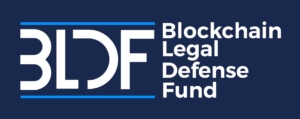The cryptocurrency landscape is constantly evolving, with regulatory bodies worldwide striving to enforce compliance and protect investors. A notable case in 2024 involves Plutus Lending, LLC, also known as Abra, a company that provides cryptocurrency services. The U.S. Securities and Exchange Commission (SEC) brought enforcement action against Abra for allegedly violating securities laws.
Background on Abra and Its Services
Abra is a California-based financial technology company that offers a global investment app for cryptocurrencies. The app allows users to trade various cryptocurrencies, including Bitcoin and Ethereum, and offers synthetic exposure to traditional assets like stocks and ETFs through crypto-collateralized contracts. Abra’s innovative platform aims to provide users with the ability to manage multiple asset types in a single application, bridging the gap between traditional finance and the burgeoning crypto market.
The SEC’s Allegations Against Abra
In June 2024, the SEC charged Abra and its affiliated entity, Plutus Technologies Philippines Corp., for offering and selling security-based swaps to retail investors without registering them with the SEC. According to the SEC, Abra marketed its synthetic investment products to retail investors in the United States and abroad, without taking necessary steps to ensure compliance with U.S. securities laws. These swaps allowed investors to gain exposure to price movements of traditional stocks and other assets without actually owning them, effectively creating a derivative product that falls under the SEC’s jurisdiction.
The SEC alleged that Abra and its affiliate conducted these activities without registering the swaps as required by the Securities Act of 1933 and the Securities Exchange Act of 1934. Additionally, the SEC claimed that Abra failed to verify whether investors using their platform were eligible to participate in such transactions, which is a critical aspect of compliance for offering these kinds of financial products.
The Legal Framework: Securities-Based Swaps and Regulation
Securities-based swaps are derivative contracts whose value is based on an underlying security, such as a stock or bond. These financial instruments are subject to stringent regulatory oversight due to their complexity and potential risk to retail investors. Under U.S. law, offering securities-based swaps to retail investors without proper registration and adherence to specific rules is prohibited to protect investors from fraud and market manipulation.
The SEC’s enforcement action against Abra underscores the agency’s commitment to ensuring that companies operating in the cryptocurrency space adhere to existing securities laws. The SEC’s stance is that even innovative financial products that leverage new technologies must comply with established regulations to protect investors and maintain market integrity.
Abra’s Response to the SEC Charges
In response to the SEC’s charges, Abra and Plutus Technologies agreed to cease offering the security-based swaps and cooperated with the SEC’s investigation. Without admitting or denying the SEC’s findings, Abra agreed to a settlement that included a penalty of $150,000. This settlement highlights the importance of compliance with securities regulations, even for companies that are at the forefront of technological innovation.
Abra’s decision to settle the charges and halt the offering of synthetic investment products reflects a strategic move to avoid further legal action and financial penalties. However, it also underscores the challenges that cryptocurrency companies face in navigating the complex regulatory environment, especially when offering products that mimic traditional financial instruments.
Implications for the Cryptocurrency Industry
The SEC’s enforcement action against Abra serves as a cautionary tale for other companies in the cryptocurrency space. It signals that regulatory authorities are closely monitoring the market and are prepared to take action against firms that fail to comply with securities laws. For cryptocurrency companies, this case emphasizes the need for a robust compliance framework that addresses both U.S. and international regulations.
The Abra case also highlights the blurred lines between traditional finance and the emerging cryptocurrency market. As more companies seek to offer innovative products that bridge these two worlds, understanding and adhering to applicable laws will be crucial for avoiding regulatory pitfalls. Companies must be vigilant in ensuring that their products do not inadvertently trigger regulatory requirements that could lead to enforcement actions and penalties.
Lessons for Investors and Companies
For investors, the Abra case underscores the importance of due diligence when engaging with cryptocurrency platforms that offer complex financial products. Understanding the regulatory status of these products and the platform’s compliance with relevant laws is essential for minimizing risk and ensuring a safe investment experience.
For companies, the key takeaway is the necessity of compliance with securities laws, regardless of the novelty of the technology or product. Engaging with legal experts and regulatory authorities early in the development process can help ensure that new offerings are structured in a way that complies with applicable regulations, thereby avoiding costly legal battles and reputational damage.
The SEC’s case against Abra is a significant development in the ongoing regulation of the cryptocurrency market. It highlights the challenges that companies face in navigating the complex regulatory landscape and the importance of compliance with securities laws. As the cryptocurrency industry continues to evolve, companies must prioritize regulatory compliance to protect their interests and maintain investor trust. For the broader market, the Abra case serves as a reminder that even the most innovative financial products must operate within the bounds of established regulations.
This case reinforces the SEC’s commitment to ensuring that the cryptocurrency market operates transparently and in compliance with U.S. securities laws. For investors and companies alike, understanding the regulatory landscape is crucial for success in this rapidly evolving space.










